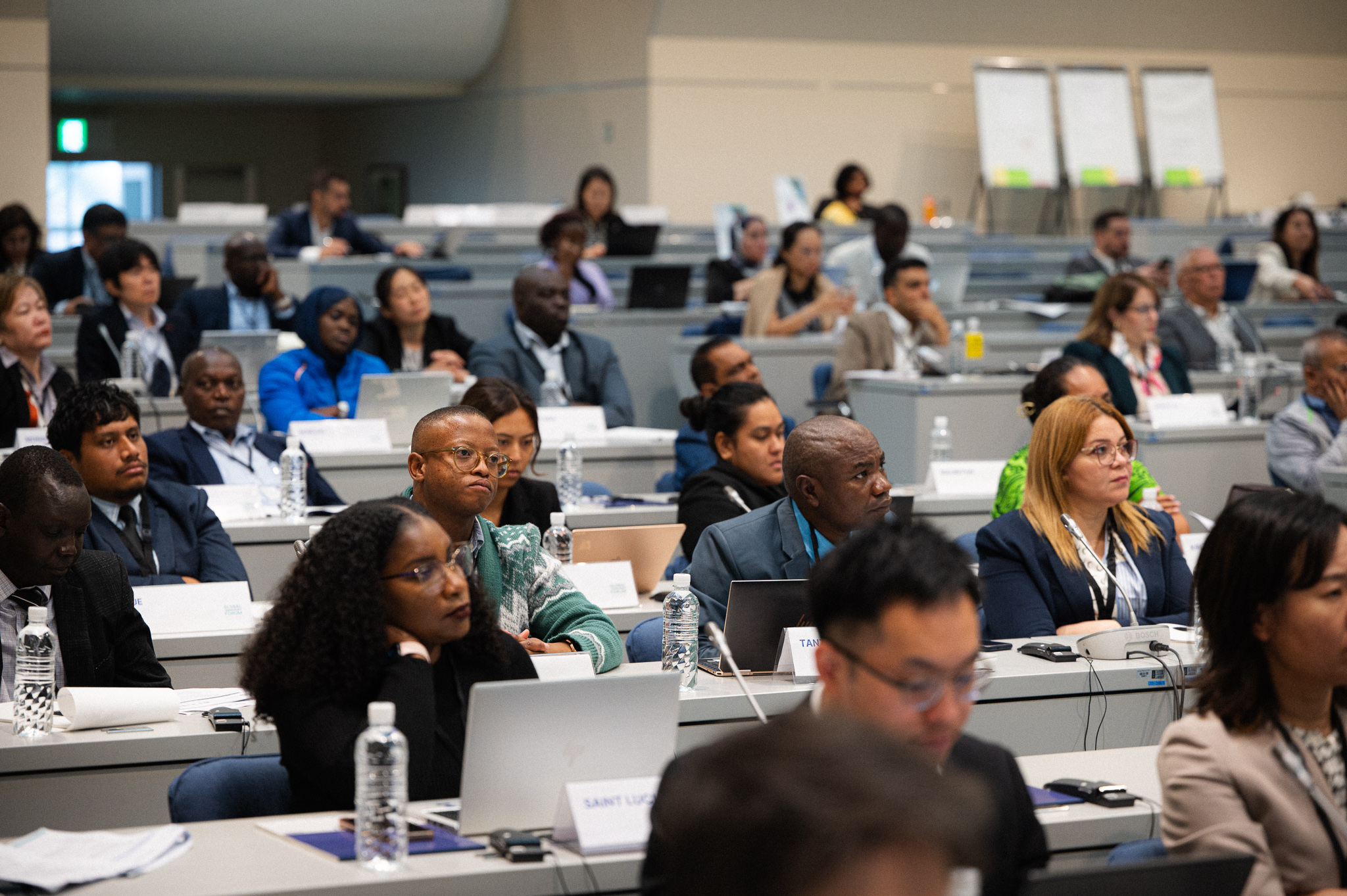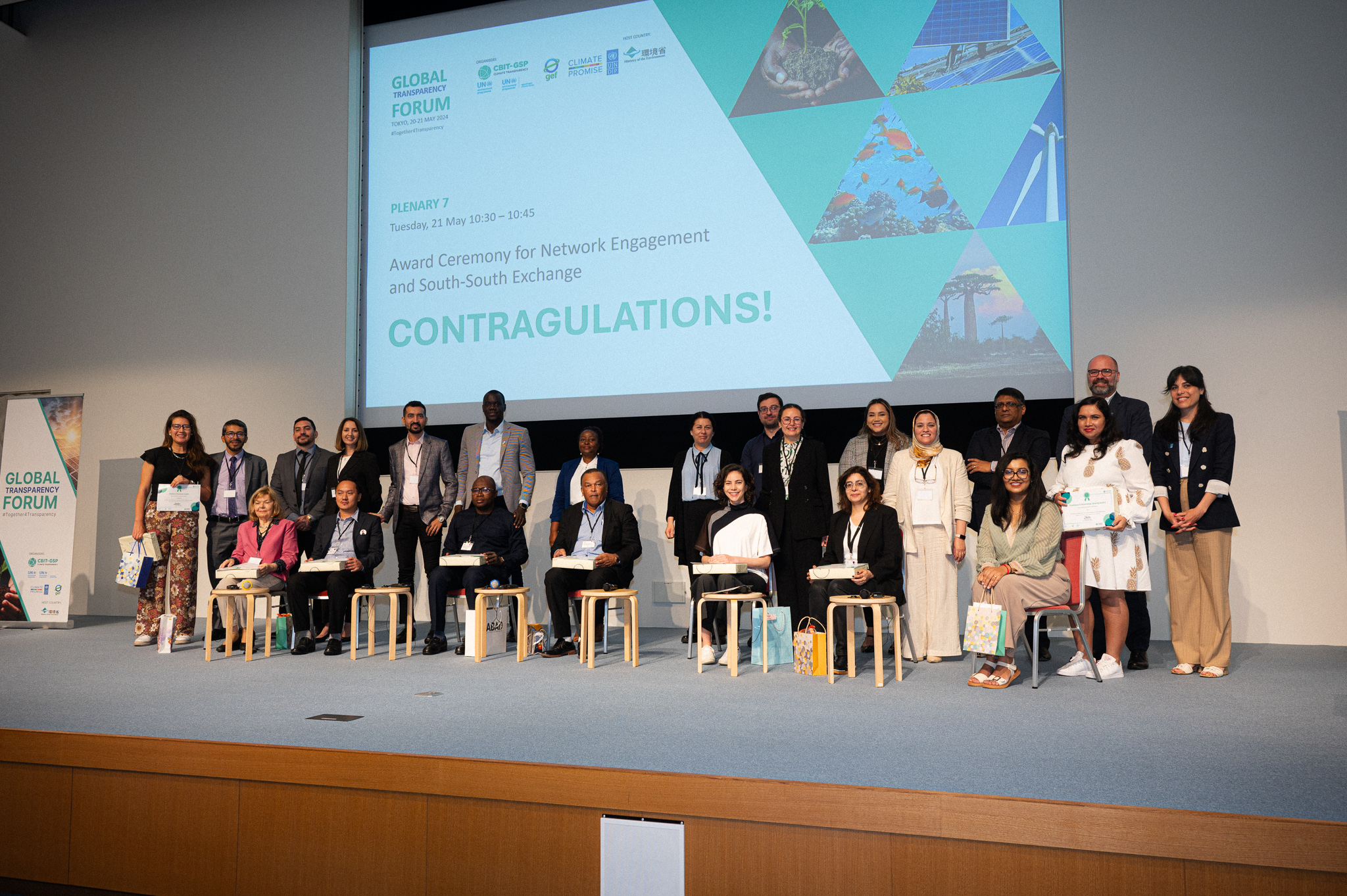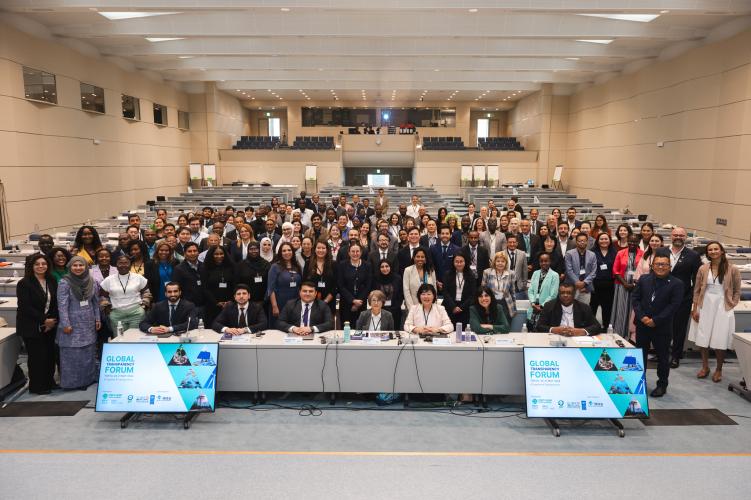The first Global Transparency Forum, held on May 20-21, 2024, in Tokyo, marked a significant milestone in international climate policy. Gathering over 180 government officials, experts, and representatives from international organizations, the forum focused on enhancing global collaboration and transparency in climate action. As countries prepare for the first-ever submission of their Biennial Transparency Reports (BTRs) by December 2024 and their next Nationally Determined Contributions (NDCs) by February 2025, The forum’s timing was strategic, catalysing momentum and serving as a platform to exchange knowledge, successes, and lessons learned in preparation for these critical milestones.
The forum, organized by the Capacity-building Initiative for Transparency - Global Support Programme (CBIT-GSP), and hosted by Japan's Ministry of the Environment, was supported by UNEP, UNDP Climate Promise and the Global Environment Facility. The forum featured nine plenary sessions, including a high-level dialogue, three breakout sessions, and a support fair in a marketplace format. Speakers from developing countries, donors, and supporting agencies shared experiences, successes, and lessons learned.
High-Level Dialogue on Transparency and Ambition
The Forum was opened by Yutaka Matsuzawa, Vice-Minister for Global Environmental Affairs for Japan, who highlighted Japan’s commitment to transparency and international cooperation. Ms. Masako Ogawa further announced Japan’s intention of submitting her first BTR before COP29. The opening session included representative from the GEF Secretariat, UNDP and UNEP. Chizuru Aoki of the GEF Secretariat highlighted the foundational role of transparency in the Paris Agreement. The importance of robust data collection and transparent reporting was stressed by Ms. Miriam Hinostroza of UNEP. This session set the stage for discussions on the Enhanced Transparency Framework (ETF) and the importance of transparent reporting to track and boost climate action.

The first day of the Forum featured a high-level dialogue with opening remarks from Elizabeth Mrema, Deputy Executive Director of UNEP followed by representatives from UNDP, the Global Environment Facility (GEF) and UNFCCC. This was followed by the COP Troika, consisting of UAE, Azerbaijan and Brazil, the hosts of last year’s, this year’s and next year’s climate negotiations. The Troika underscored transparency as a critical priority and emphasised that enhanced transparency and ambition are fundamental to unlocking increased climate finance. Biennial Transparency Reports (BTRs) play a crucial role in making Nationally Determined Contributions (NDCs) more attractive to investors. To be effective, strong NDCs must align with the 1.5°C temperature goal and integrate with national development strategies. This alignment ensures that climate actions are both ambitious and achievable within the broader context of sustainable development. Furthermore, six countries (Guyana, Panama, Moldova, South Africa, Mozambique, and Malaysia) shared their progress and challenges in implementing the ETF, offering valuable insights into climate transparency best practice. These countries highlighted the importance of national coordination systems, stakeholder engagement, and continuous capacity building of national teams as critical factors for successful transparency and accountability in climate action.
Building Capacity and Overcoming Challenges
Plenary sessions focused on building capacity for ETF delivery, exploring the global status of support for transparency, and addressing the remaining gaps in ETF implementation. Discussions on available support underscored the role of the GEF and CBIT projects in enhancing national transparency systems. Ms. Fatima-Zahra Taibi of CBIT-GSP presented various support modalities available to countries through the CBIT-GSP, including transparency networks, in-country support, regional trainings, and different guidance documents aimed at supporting countries in the reporting. Presentations from UNEP, UNDP, and FAO provided perspectives on the different support available and provided to developing countries. The session emphasised the importance of integrating transparency efforts into broader national policies and ensuring sustainability through strong institutional arrangements.
Breakout sessions allowed participants to delve into specific aspects of transparency support, such as the priorities for enhanced transparency, design of CBIT Phase 2 projects, and lessons learned from existing implementations. These discussions highlighted the critical need for robust data collection and management, institutional arrangements, stakeholder engagement, and continuous capacity building to enhance transparency and accountability in climate action.
Celebrating Excellence in Transparency
A special recognition ceremony was held, honouring countries that demonstrated exceptional commitment to transparency from the CBIT-GSP Transparency Networks. Uzbekistan, Bhutan, Togo, and Seychelles were recognized as "Dedicated Learners," while Georgia, Lebanon, Belize, Fiji, and Brazil were celebrated for "Excellence in Knowledge Sharing." Colombia was honored as a "Platform Champion," inspiring others to follow their lead in advancing climate transparency.

The forum concluded with reflections on the critical role of transparency in raising climate ambition. High-level political buy-in, policy coherence, and strong institutional arrangements were identified as key enablers for effective transparency systems. The need for continuous improvement, peer to peer learning, and strategic planning for BTRs and NDCs was emphasized.
A Call to Action
The Global Transparency Forum underscored the interconnectedness of transparency efforts and climate action, urging countries to leverage their BTRs to drive future climate commitments. The forum concluded with a call for continued collaboration and enhanced support to developing countries to ensure the successful implementation of the ETF, maintaining momentum towards achieving the Paris Agreement goals. Countries were encouraged to 'draw a line in the sand' and submit their first Biennial Transparency Reports (BTRs), which will establish a baseline of their current capacities and this baseline will serve as a foundation for continuous improvement.
The Global Transparency Forum marked a pivotal moment for advancing global climate transparency. It showcased the collective effort required to implement the Enhanced Transparency Framework (ETF) effectively. The commitment and progress demonstrated by participating countries inspire hope and determination as they prepare to submit their first Biennial Transparency Reports (BTRs). The active involvement and contributions of support providers throughout the forum were reassuring, underscoring that robust support systems are in place to assist countries in their transparency efforts. This collaboration sets a strong foundation for continued international cooperation and ambitious climate action.
